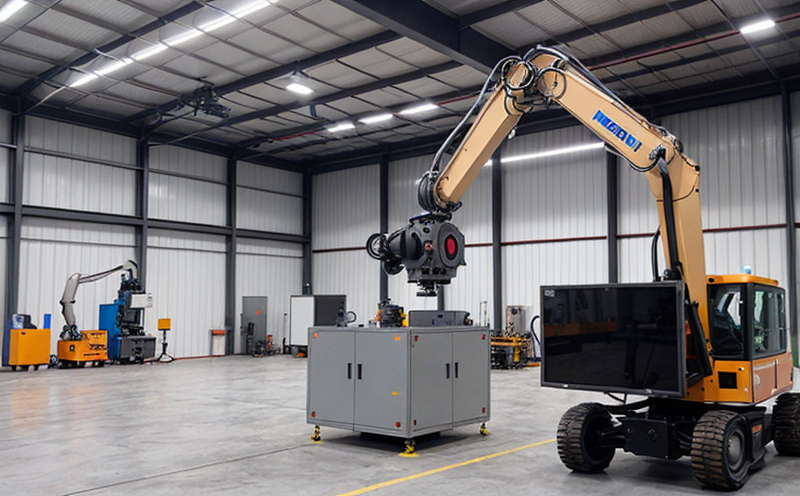ASTM D790 Flexural Properties of Industrial Robot Composites
The ASTM D790 standard is widely recognized as a definitive method for determining the flexural properties of rigid plastics. In the context of industrial and manufacturing robotics, this test plays an indispensable role in ensuring the reliability and durability of composite materials used in robotic components. This service focuses on testing these composites according to ASTM D790, providing insights into their mechanical integrity under bending stress.
The flexural properties of materials are crucial for robotics as they determine how well a material can withstand forces that cause it to bend without breaking. In industrial robotics, where precision and longevity are paramount, understanding the flexural behavior of composite materials is essential. This test ensures that manufacturers meet stringent quality standards and comply with industry regulations.
The testing process involves preparing specimens from the composite material according to ASTM D790 specifications. These specimens are then subjected to a three-point bending test, where they are loaded until failure occurs. The flexural strength and modulus of elasticity are calculated based on the load-deflection data collected during the test. This information is vital for selecting appropriate materials in the design phase of robotic systems.
The importance of this service cannot be overstated. It ensures that industrial robots perform reliably under various working conditions, reducing maintenance costs and downtime. Compliance with ASTM D790 also enhances product safety and reliability, which are critical factors in the robotics industry.
In summary, this testing method is essential for quality managers, compliance officers, R&D engineers, and procurement teams involved in industrial robotics manufacturing. It guarantees that the materials used meet the highest standards of integrity and durability, thereby ensuring the robustness of robotic systems.
Applied Standards
| Standard | Description |
|---|---|
| ASTM D790-18 | This standard specifies the procedure for determining the flexural properties of rigid plastics by means of a three-point bend test. It is used to determine tensile strength and modulus of elasticity. |
| ISO 22915:2006 | An international standard that provides guidelines for the mechanical testing of composite materials, including flexural properties. |
Scope and Methodology
| Scope | Description |
|---|---|
| Determining Flexural Properties | Testing the flexural strength and modulus of elasticity of composite materials used in industrial robotics. |
| Sample Preparation | The specimens are cut to specific dimensions as per ASTM D790 requirements. They undergo conditioning before testing to ensure accurate results. |
The methodology involves several key steps:
Selecting the appropriate specimen size and shape according to ASTM D790 standards.
Conditioning the specimens in a controlled environment for at least 24 hours to stabilize moisture content.
Mounting the specimens on a three-point bending fixture.
Applying a gradually increasing load until fracture occurs, recording the maximum load and deflection.
Analyzing the data to calculate flexural strength and modulus of elasticity.
This comprehensive approach ensures precise and reliable results, critical for ensuring the durability and performance of robotic components.
Why Choose This Test
Compliance with industry standards and regulations.
Enhanced product reliability and safety.
Precision in selecting materials for optimal performance.
Reduction of maintenance costs due to increased component longevity.
Meeting customer expectations for robust robotic systems.
The ASTM D790 flexural properties test is a cornerstone of quality assurance in industrial robotics. By ensuring that the materials used meet rigorous standards, this service supports the development of reliable and efficient robotic systems.





